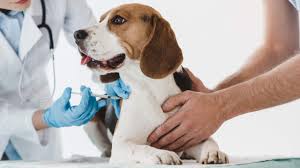20
₵600.00
Introduction Animal health training is a course designed to give students an in-depth understanding of the principles of animal health. …
Introduction
Animal health training is a course designed to give students an in-depth understanding of the principles of animal health. From basic anatomy and physiology to nutrition and disease control, this course provides a comprehensive overview of topics related to the health and wellbeing of animals. Students will learn about animal behaviour and common diseases, as well as proper medical practices for diagnosing and treating them. Along with gaining knowledge about the different species of animals, students will also gain practical experience in dealing with animals in a clinical environment, such as administering vaccinations or carrying out physical examinations. In addition, students learn how to recognize signs of distress or illness in order to provide high-quality care for their patients. Animal health training courses are an essential part of any veterinary healthcare team's education.
Objectives
- Develop an understanding of the anatomy, physiology, and function of companion animals.
- Learn how to recognize, diagnose, and manage common animal diseases and health conditions.
- Learn best practices for animal husbandry and welfare management in different settings.
- Understand the importance of nutrition in disease prevention and health promotion.
- Acquire knowledge on relevant legislation, licensing requirements, regulations and policies related to animal health care services.
- Gain knowledge on essential clinical procedures such as anaesthesia, physical examination, blood sampling and other laboratory tests interpretation.
- Be able to administer vaccines and medications appropriately for treatment or preventative purposes.
- Learn about zoonotic diseases (diseases that can be transmitted from animals to humans) risks and preventive methods of control .
- Understand the principles of infection control methods in veterinary practice settings.
- Develop soft skills such as communication with owners/ownership; handling difficult situations/clients; practicing with professional ethics; etc
Course Currilcum
-
- Introduction to Animal Health Unlimited
-
- Preventive Care Unlimited
- Diagnosis and Treatment Unlimited
- Exam and Certificate of participation 00:00:00
Course Instructors
Course Reviews
N.A
- 5 stars0
- 4 stars0
- 3 stars0
- 2 stars0
- 1 stars0
No Reviews found for this course.



